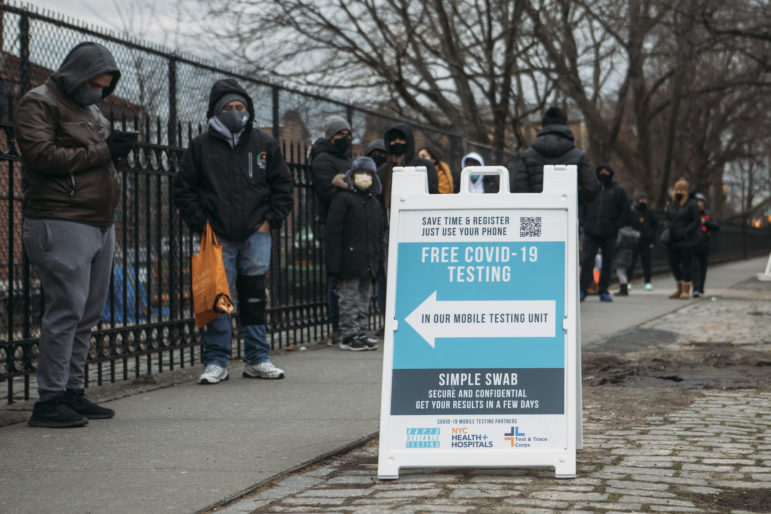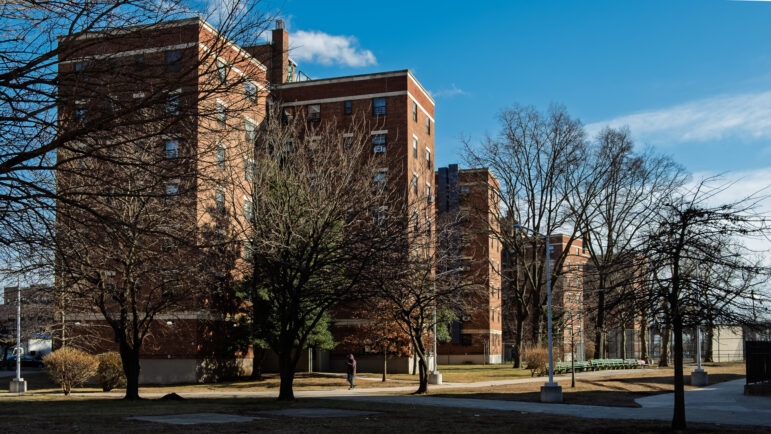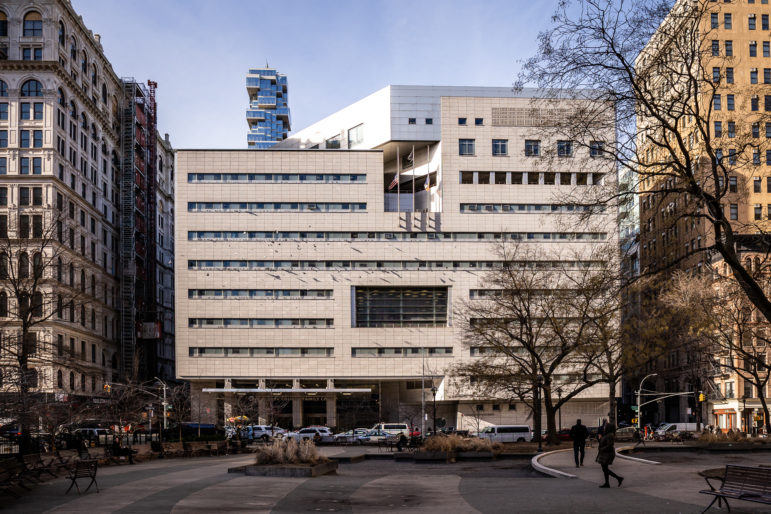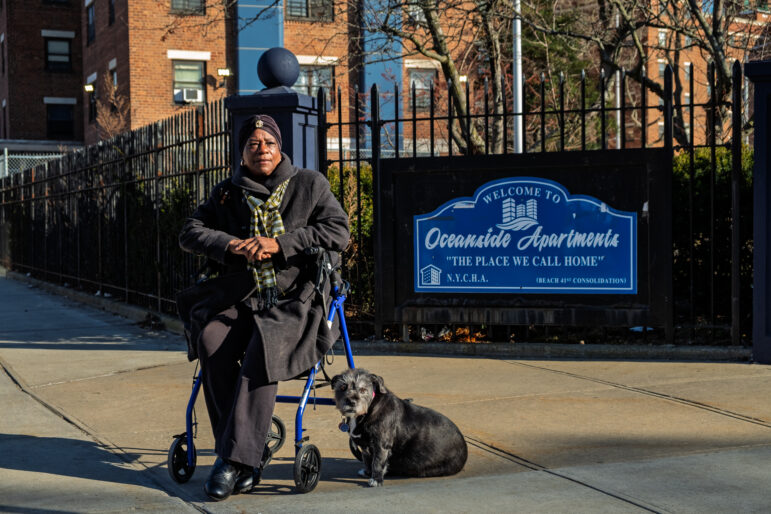Queens Borough President Donovan Richards is calling for the city to streamline its pandemic response into one new office that would report to the mayor, and address things like long testing lines and equitable distribution of vaccine sites.

Emil Cohen/NYC Council
A COVID-19 testing line in Queens in early January.Last month, as the omicron variant fueled a major surge in COVID-19 cases, frustrated New Yorkers across the city lined up in the cold, often for hours, to access tests, raising questions about the city’s ability to respond to the crisis nearly two years after the pandemic’s start.
Donovan Richards, the borough president of Queens—the borough hardest hit by the pandemic, and one of its early epicenters—wants to overhaul that response by streamlining the city’s COVID-19 efforts under the roof of one office.
He’s working with City Councilmember Selvena Brooks-Powers to introduce legislation that would establish the New York City Office of COVID Recovery, taking over administration of coronavirus testing, vaccinations and other responsibilities.
“We’re two years in, and we shouldn’t be making the same rookie errors going into 2022,” Richards said during a press conference Thursday. The city’s current COVID response is spread across different agencies—largely falling to the mayor’s office, the Department of Health and Mental Hygiene and the Health + Hospitals systems, which runs the city’s test and trace operations.
That, Richards said, has led to a disconnect on certain efforts, complicated by “bureaucratic red tape” and “a lot of challenges with inter-agency coordination.”
“Over the past two years, it has felt certainly like the ‘Game of Thrones’ and ‘Squid Game’ when it comes to organizing our response,” he said. “We know that even at the City Council level, you’re going to have 20 commissioners show up to a hearing to discuss COVID-19.”
The office, he proposes, would be overseen by a single commissioner, as well as coordinate regularly with a liaison from each borough. “At least we know that there’s one person who’s coordinating and one person who we can hold accountable,” Richards said, saying this role would report directly to a deputy mayor.
In addition to strengthening the city’s vaccine and testing apparatuses, the office would work on building relationships with community-based organizations to combat vaccine hesitancy, and to seek out inequities across the system. He pointed to prior problems, like the city’s decision to shutter testing sites in November ahead of the winter surge, as well as certain neighborhoods with limited access to test sites.
“The job of this office would be proactive in looking at neighborhoods, in looking at numbers, in looking at where gaps are,” he said.
The office would operate as long as the pandemic remains a threat. “I don’t think this office needs to exist for the next thousand years,” Richards said. “Obviously, this pandemic is not over yet.”
The city’s 7-day positivity rate was 28.7 percent on Monday, down from a week before but still much higher than before omicron hit in early December, when it hovered around 3 percent.
Mayor Eric Adams’ office said they’ll consider the idea.
“The administration has received Borough President Richards’ proposal in concept, and we look forward to reviewing it in greater detail,” Adams’ adviser Stefan Ringel said in a statement.









